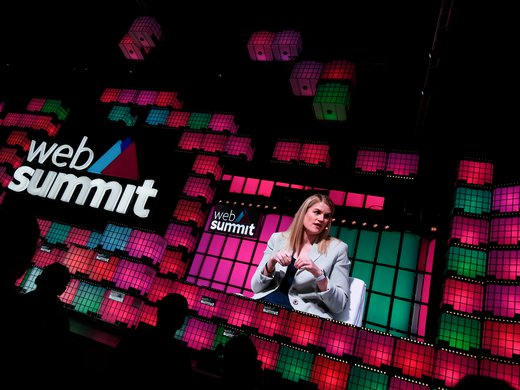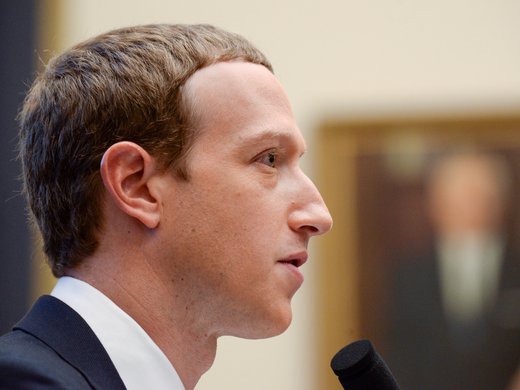Thierry Breton, the European Union’s commissioner for the internal market, tweeted a photo of himself on Monday with Facebook whistle-blower Frances Haugen and Christel Schaldemose, rapporteur for the Digital Services Act (DSA), the law that the Europeans hope will allow them to better regulate the social media giants.
“Europe is serious about regulating what still resembles a digital Wild West,” Breton wrote. “Speed is everything. Platforms must be accountable. Lobbying will not interfere with the greater interest of the [European] people.”
Haugen had just finished a presentation to European legislators, which followed similar sessions with American, British and German politicians. She has been making the rounds after leaking internal Facebook documents last month — the Facebook Papers — that led to stories in outlets around the world casting new light on a wide range of harms caused by social media.
In Brussels, she urged the Europeans to radically empower regulators.
“Facebook has shown that they will lie with data,” Haugen said. “I encourage you to put in the DSA; if Facebook gives you data they should have to show you how they got it….It’s really, really important that they should have to disclose the process, the queries, the notebooks they used to pull this data because you can’t trust anything they give you unless you can confirm that.”
Haugen wants Europe to lead, forcing Facebook and other tech companies “toward language-neutral content-neutral solutions,” so they do a better job of dealing with problematic content in the non-English-speaking world.
Haugen has said that she felt compelled to leak the internal documents in part because she was concerned about Facebook’s lack of attention to online safety measures outside the anglosphere, where the platforms operate but safety measures fall far short of Western standards. One Washington Post story from the Facebook Papers showed how the platform failed to take rudimentary steps to stop Spanish-language misinformation from spreading, even in the United States.
Haugen is likely right to hope that European parliamentarians will be more effective in forcing changes on the platforms than their American counterparts. Europe is home to the most powerful and effective regulatory states, and the need for regulations to reduce harms is not subject to the same partisan conflict as in the United States.
Breton, for instance, was finance minister in Nicolas Sarkozy’s conservative government. It’s interesting that he felt the need to tweet that lobbyists “will not interfere” in the legislative process. He may have felt it was necessary after the European Union’s experience of trying to impose privacy rules on Amazon, which, after much lobbying, led to a three-year stalemate and, so far, no new rules.
In Washington, where there is no bipartisan consensus on the need to keep lobbyists at bay, politically connected Facebook executives donate millions to the legislators who write the laws that govern the platforms.
There is an unprecedented congressional push to regulate social media, but Facebook has responded by increasing its lobbying spend, and critics say that while they speak publicly about the need for updated regulations, behind the scenes, when their lobbyists are meeting with law makers, they are looking for ways to sideline bills.
There appears to be a bipartisan consensus on the need to stop the platforms from collecting and retaining personal information from children, but it is hard to know what will happen behind closed doors about more ambitious proposals, such as the creation of the kind of regulator that Haugen favours, or the nuclear option — breaking up Meta, Facebook’s parent company, through antitrust action.
One social media lobbyist, who spoke on condition of anonymity, finds it hard to know what will happen.
“I assume that we’ll see something on kids, but…it’s a very strange system. They’ll crack out some sort of negotiation with the platforms and with each other, and then a draft bill may be tabled, but maybe nothing will happen.”
Any moves will take place in the context of no-holds-barred hyperpolarized political struggle.
“What does Fox say about breaking up Facebook?” says the lobbyist. “That’s your indicator.”
In the culture war at the heart of Trump-era US politics, partisans on both sides are terrified of ceding advantage to the other in the public square. Republicans complain that Democrats are trying to silence them and restrict free speech. Democrats want to take action against hate speech and disinformation, and point out that Facebook appears to favour conservative voices.
Democratic Senator Elizabeth Warren has repeatedly drawn attention to the role played by former George W. Bush staffer and fossil-fuel lobbyist Joel Kaplan, Facebook’s vice president of global public policy, suggesting the company uses unethical methods to influence regulators and law makers.
In one of the documents leaked by Haugen, a Facebook staffer complained internally that content moderators are overruled by powerful executives from the lobbying side when they try to take decisions based on written policy: “Facebook routinely makes exceptions for powerful actors when enforcing content policy.”
Republican law makers were sympathetic to Haugen when she was testifying, but some conservative voices are warning that she is a stalking horse for the Democrats. Right-wing podcaster Ben Shapiro, whose posts are often among the most shared items on Facebook, has warned that Haugen is power-mad, seeking to create a regulator “that will act as a sort of super-CEO of the company. They’re not hiding the ball on this. The goal is control of informational dissemination.”
This critique is so far confined to the edges of the debate. If law makers move aggressively, whatever bipartisan consensus now exists on Capitol Hill may break down, and we may hear similar arguments from Sean Hannity.
And there are real reasons to be cautious about regulatory overreach. Human rights advocates have complained about the free speech implications of Germany’s aggressive regulations. And American law makers are reluctant to hamper the competitiveness of America’s tech giants. If data is the new oil, as The Economist wrote in 2017, we can’t expect American politicians to constrain the tech companies any more effectively than they have constrained oil giants.
Expect Brussels, not Washington, to lead.



